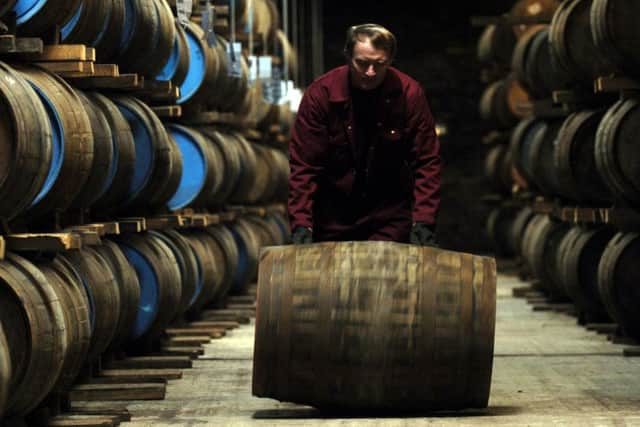Jim Duffy: Start-ups can learn from the whisky-makers
This article contains affiliate links. We may earn a small commission on items purchased through this article, but that does not affect our editorial judgement.


As we discussed both of these and how they were long-term investments with long-term lead times, it occurred to me that good things sometimes take lots of time.
It is remarkable that the 18-year-old whisky that sits in front of you has been laid down in barrels for years and years to create that masterpiece of taste and flavour. Having visited whisky distilleries, it does lock you to the spot when the tour guide tells you that the barrels you are looking at will mature in 12 years!
Advertisement
Hide AdAdvertisement
Hide Ad• READ MORE: ESpark co-founder Jim Duffy launches new accelerator


And let’s not forget tree-planting. The Scots Pine or Sitka Spruce need more than 20 years to grow… before they end up as table furniture or entrance gates. Long-term plays… so why can many of our start-ups not see the wood for the trees? It’s called short-termism.
Business-builders will tell you that everything takes twice as long as forecasted or predicted. As I listen to start-ups saying they will get funding in three months, I then calculate in my head that this will in effect take six months and that they will need to factor all of this into their planning and cash flows.
But, alas, so many of our new start businesses fail to recognise the importance of longer-term thinking and how this can have a multiplier effect on the final value.


A start-up – and by this I mean a true start-up that wants to grow fast, while building in structure at the same time – needs to have some form of finance in place. Whether this is debt from a bank or lender or, as is the preferred case these days, equity investment from an investor, it does not happen overnight.
In the feverish excitement of the co-working space, business accelerator or indeed incubator, should a start-up use any of these, raising equity finance has become the primary arbiter of success. Indeed, landing or securing that £150,000 seed funding is like a badge of honour that says, “we’ve made it – we’re entrepreneurs”.
Advertisement
Hide AdAdvertisement
Hide AdBut the real work is just about to begin. This is where so many fall down spectacularly.
Why? Well, it’s a way of thinking that creates a short-term view of the world. Having achieved the Holy Grail of securing “other people’s money”, our start-ups indeed cannot see the wood for the trees and get lost in the forest. It’s a culture that we have and are creating as so much focus is on the achievement of investment and valuation pre-investment. In short, we’re not creating a culture of business-builders, and many SME-owners in industrial trading estates having built longer-term, sustainable businesses would wholeheartedly agree. Unfortunately, the term “start-up” is now dogged by short-term thinking, short-term planning and short-term mindsets.
But short-termism does not stop here. The new breed of business-builders is creating business models that are, well, uninspiring, basic and with no concept of strategic value. This is a serious problem exacerbated by the culture of the current start-upland landscape. It’s all minimal viable proposition and act without thinking.
As many of you know, I’m a big fan of having a “GoDo” attitude, but this does not mean taking the time to sit with your team, your advisors etc and reflect on insight gathered and what is working and not working in the market place. The business proposition you have today will look very different in six months, so it is worth planning now for possible eventualities and opportunities that will arise. Time to think longer-term.
Our start-up entrepreneurs need to take a lesson from the whisky-makers. Distilling whisky today that will be laid down for 12 years, while selling the whisky that was distilled and laid down 12 years ago, takes planning and a long-term view of the business.
Perhaps we should be looking at the lessons learned from these business models, while at the same time gathering insight from the frenetic goings on at the likes of Uber.
• Jim Duffy is co-founder of The Moonshot Academy and author of Create Special